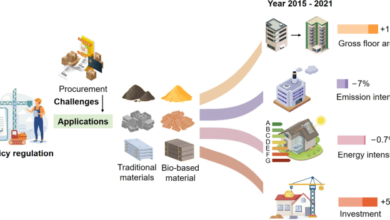Resources for First Time Home Buyers

Embarking on the journey to homeownership is an exhilarating milestone, yet it can seem overwhelming for first-time buyers. Navigating the real estate market requires understanding a myriad of components, from financial planning to finding the right property. With the intention of guiding you through this exciting process, we’ve compiled a comprehensive resource. Whether you’re curious about securing a mortgage or seeking the perfect real estate agent, this guide is crafted to assist. Below you’ll find the essential knowledge to make your first home purchase as smooth as possible.
Essential Steps in the Home Buying Process for Newbies
The initial step for first-time home buyers is to assess their budget and establish a realistic price range. Understanding your financial limits will streamline the search process and prevent any disheartening surprises. It’s also critical to be aware of additional expenses such as closing costs, home inspections, and future maintenance.
After determining your budget, it’s time to explore mortgage pre-approval. This step is crucial as it signifies to sellers that you are a serious buyer, and it can offer you a competitive edge in fast-moving markets. Pre-approval will outline how much the lender is willing to loan you based on an assessment of your creditworthiness and financial health.
With pre-approval in hand, you can start the quest for your dream home. First-time buyers often benefit from researching various neighborhoods to find the best fit for their lifestyle and budget. Once you’ve pinpointed a few potential areas, it’s essential to attend multiple viewings and open houses for RTM homes and cottages Saskatchewan. Check out RTM homes and evaluate the different floor plans, building materials, and modern amenities.
If you’re interested in building a new home, you can find custom home builders in your area. The best part about homebuilding is the flexibility to choose your own finishes, including deck stains, fixtures, and lighting. Determine what’s in your budget and start doing research.
Understanding Mortgage Options for First-Time Buyers
Mortgages are not one-size-fits-all, and as a first-time home buyer, it’s pivotal to understand the variety of products available. Fixed-rate mortgages offer stability with consistent monthly payments, whereas adjustable-rate mortgages might initially present lower payments, with the potential for rate changes later on.
It’s also worth exploring government-backed loans, such as FHA loans, which can be more accessible for those with lower credit scores or smaller down payments. Meanwhile, VA loans serve veterans and current military members, often requiring no down payment at all.
Understanding the terms and requirements of each mortgage type is vital. Factors such as loan term, interest rate, and whether mortgage insurance is required can drastically affect the overall cost of your home loan. Seeking advice from a financial advisor can help clarify which mortgage aligns with your financial circumstances.
Government Programs Available to Assist First-Time Home Buyers
Several government programs exist to help first-time buyers enter the housing market. For instance, the Federal Housing Administration (FHA) offers loans with lower down payment requirements, while the U.S. Department of Agriculture (USDA) has loans and grants for rural homebuyers. Researching these possibilities early on can save a significant amount in the long term.
State and local governments may also have their own initiatives, including down payment assistance programs or tax credits for first-time buyers. Navigating through these options can be complex, but the benefits are often worth the effort.
Participating in a first-time homebuyer education course can unlock certain programs, and many lenders require it for mortgage approval. These courses are designed to prepare buyers for the responsibilities of homeownership and can often lead to better loan terms.
How to Build a Solid Credit Score for Mortgage Approval
One key element lenders consider when evaluating a mortgage application is the buyer’s credit score. A higher score generally translates to better loan conditions, such as lower interest rates. For first-time buyers, taking steps to bolster creditworthiness is crucial.
Regularly monitoring your credit report allows for the correction of any inaccuracies that could be impacting your score. Additionally, paying bills on time, reducing your debt-to-income ratio, and avoiding new credit applications in the months leading up to your mortgage application can positively affect your credit profile.
Establishing a lengthy credit history is advantageous, so you might want to refrain from closing old credit accounts even if they are seldom used. The age of your accounts can contribute to a more favorable credit score.
Altogether, the path to homeownership for first-time buyers is undeniably complex, but with informed planning and expert help, it’s a fulfilling venture. By understanding the home buying processes, financing options, and accessing available resources, your journey can lead to a gratifying conclusion. Deploying these resources wisely can transform the dream of owning your first home into a delightful reality.





